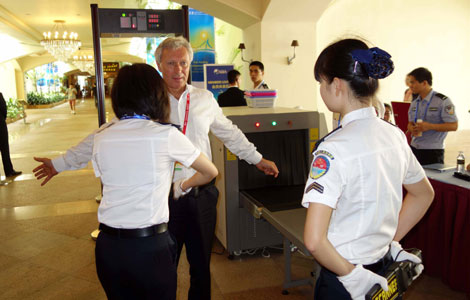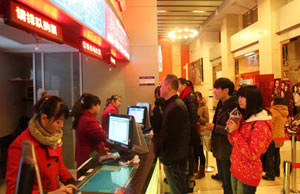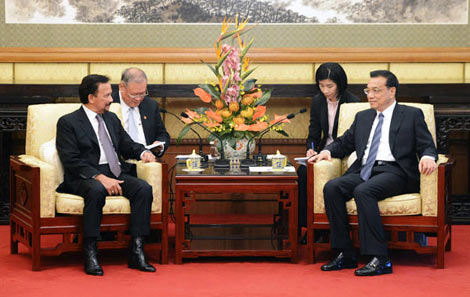
China's economic restructuring new dividend for global industry
"We need to promote industrial restructuring, establish a new framework for modern industrial development and lay stress on the settlement of the problem of overcapacity in a bid to improve the quality of, derive more benefits from and add new impetus to China's economic development," said Xi Jinping, general secretary of the CPC Central Committee, while deliberating with NPC deputies on the government work report during the annual session of the 12th National People's Congress (NPC).
To incorporate information technology into industry, to prioritize advanced manufacturing, to upgrade traditional industries through financing and supporting emerging strategic industries....
Those initiatives serve not only as a response to global economic and technological competition in the post-crisis era but a driving force for a new round of international division of labor and industrial restructuring to form a new pattern featuring a win-win outcome for the whole world.
Vice president of India-China Friendship Association G.H. Fernandes said that China is gradually reducing its role as the world's factory, which is good news for its neighboring regions.
Rosendo Fraga, director of the New Majority Research Center, said China's economic transformation and upgrading will not only help boost the export of its neighbors or other developing nations but also offer lots of opportunities for countries like Mexico, which can fill China's vacancies in the industry chain.
While trying to restructuring its economy, China is also seeking to break development bottlenecks through innovation, which offers opportunities for European and US enterprises that own advanced technologies in areas such as new materials, bio-medicine and clean energy.
In the context of industrial upgrading, transnational enterprises can find great opportunities in regions like China's Yangtze River Delta and Pearl River Delta, said Gerard Lyons, chief economic advisor to the mayor of London.
Lyons also advised British enterprises to seize such opportunities and enter high value-added industries.
Patima Prajakschitt, a senior research fellow with the Kasikorn Research Center, said that China's industrial upgrade, which draws on technological achievements from developed countries, could also make a technological transfer to developing countries.
China's technological exports of clean energy and solar energy in particular has effectively improved the local energy structure, she said.
A new cooperation partner as china goes global
Openness is still the core of China's economic policy as the government work report said that China will adhere to the basic national policy of opening up and implement a more proactive opening-up strategy.
A report of PriceWaterhouseCoopers said China is rapidly emerging as a global investor. It can be predicted that in the future, Chinese capital will actively get involved in global resources and technology, thus relieving the pain of industries from US, European economic contraction and financial restraint.
Chinese capital is much needed in the money-hungry world. A report by the University of Sydney said China is expected to invest billions of dollars in Australia in the next five years and the funds could boost local economic growth and create jobs.
Meanwhile, the Chinese economic growth model also offers inspiration to other nations.
In the eyes of Fraga, the Chinese model shows the importance of consistency of a nation's development strategy. Meanwhile, a stable political environment is also vital for a country's socioeconomic development.
Lyons also noted the long-term vision of Chinese decision makers, saying that developing countries can learn from China's gradual approach to financial liberalization as well as its emphasis on infrastructure construction.
Professor Shaun Breslin of the University of Warwick in Britain said the message China is sending to other developing countries is that the Washington Consensus is not the only model of growth.
 'Cat model' to dazzle Shanghai auto show 2013
'Cat model' to dazzle Shanghai auto show 2013
 Models at Tokyo modified car show
Models at Tokyo modified car show
 Shanghai Fashion Week focuses on domestic brands
Shanghai Fashion Week focuses on domestic brands
 Angel-dress models at Shandong auto show
Angel-dress models at Shandong auto show
 Safe and Sound
Safe and Sound
 Theater firms scramble for managers
Theater firms scramble for managers
 Premier pledges closer ties with Brunei
Premier pledges closer ties with Brunei
 Volkswagen's all-new GTI at New York auto show
Volkswagen's all-new GTI at New York auto show